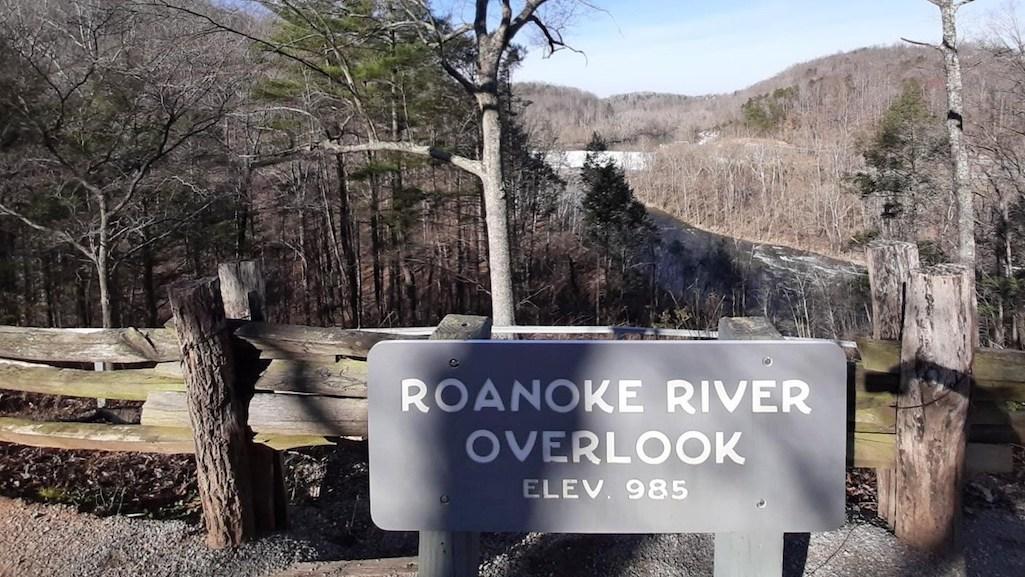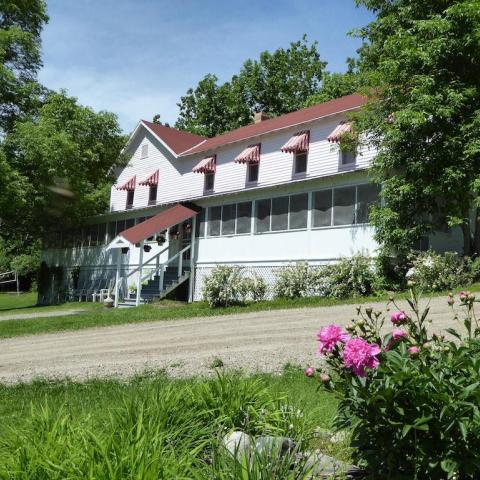
Major work on the Roanoke River Bridge will require a detour along the Blue Ridge Parkway/NPS file
Rehabilitation of the Roanoke River Bridge along the Blue Ridge Parkway will require a year-long extension of a route detour in Virginia.
The detour around the bridge section, at Milepost 114.7, was put in place last May after a major road failure on the parkway.
The National Park Service and Federal Highway Administration identified this project as a priority in 2015, as part of the ongoing, multi-year road maintenance planning process for the Blue Ridge Parkway. This project includes concrete repairs to bridge piers, reconstruction and drainage repairs to approach areas, removal of existing asphalt surface and waterproofing membrane, installation of new waterproofing membrane and asphalt surface, and repainting of the steel super structure of the bridge. The closure is expected to begin in mid- to late-April and be in place through spring 2022.
As a result of this bridge project, the NPS will extend a current detour put in place in May of 2020 after to a major road failure on the Parkway. Once contractors close the Roanoke River Bridge, the new, extended detour will be in place from VA Route 24 at Washington Avenue (Milepost 112.2) to Adney Gap at US 221 (Milepost 136.0). Access to Explore Park will be available from the south via US 220 (Milepost 121.4). Behind closed gates in this area, the parkway will be closed to all uses including motorists, cyclists, and pedestrians. The public’s cooperation with this closure will provide for the most efficient work schedule and will ensure the safety of staff, visitors, and the contractor.
Plans to repair the road failure near Milepost 128 are also underway, and work is expected to begin in this area during the spring of 2022. Visitors are reminded that, due to the hazardous nature of this slope failure, the section of road nearest the slide is closed to all uses including motor vehicles, bicycles and pedestrians. Walking and biking in the gated sections on either side of the fencing at the slide is permitted.
“We recognize these Roanoke area closures create short term impacts, however we are pleased to know that in the coming years, this section of the Parkway will be restored in ways that will allow for many more years of high quality visitor experiences,” said Alexa Viets, acting superintendent of the Blue Ridge Parkway. “We appreciate the local community’s support and leadership in providing helpful online information to navigate the detour in ways that encourage visitors to enjoy beautiful off-Parkway views and unique things to do in the communities along the detour route.”
The Blue Ridge Parkway inventory of paved roads includes bridges, tunnels, parking areas, spur roads, service roads, campground, and picnic area roads, and the 469-mile Parkway motor route itself. Across the Parkway, many of these areas exceed recommended life cycles and are in need of repairs estimated at over $400 million. Funding for road maintenance on the Parkway comes, in large part, from the Highway Trust Fund, which is derived from a federal fuel tax. The Blue Ridge Parkway annually identifies projects and competes for funding to repair and maintain park roads.
Updates to the road status will be made when available on the park website at www.nps.gov/blri, and on Blue Ridge Parkway Facebook and Twitter accounts.




 Support Essential Coverage of Essential Places
Support Essential Coverage of Essential Places






